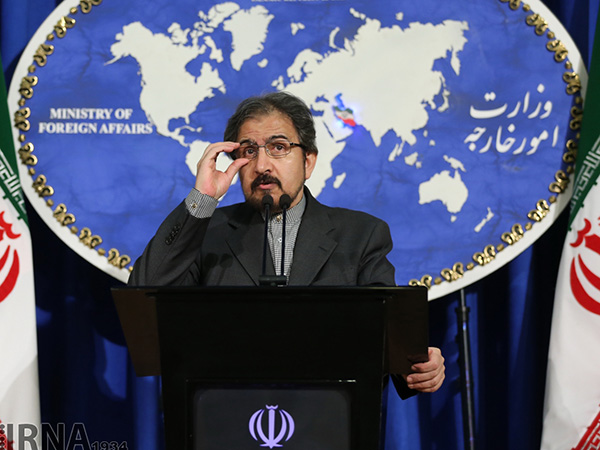“This report has once again portrayed a distorted and politicized image of religious freedom conditions in the Islamic Republic of Iran,” Qassemi noted in a Wednesday statement.
The report has also raised false accusations against the Islamic Republic, which are undoubtedly unacceptable and rejected, he added.
Qassemi referred to the interpretations of religions and religious beliefs included in this report, and said, “Offering such fabricated and baseless interpretations of religions and religious beliefs will finally lead to exacerbation of interfaith crises and problems and fail to yield any positive results.”
“In order to settle religious differences and getting them [religions] closer to each other, one should strongly avoid politicizing the issue,” he noted, adding that dialogue, respect for each other’s beliefs based on human values, and respect for the followers of all divine religions are the only ways to heal such rifts.
“The US administration seems to have forgotten about this important goal and is only trying to take political advantage of the existing religious diversity in some countries in the world,” he went on to say.
“It is believed that the US does not even have a realistic evaluation of domestic situation in these countries, particularly their demographic and religious conditions,” Qassemi added.
“The great people of Iran are freely practising their religions based on the progressive articles of our Constitution and within the framework of the country’s law,” he noted, adding that Iran’s law safeguards these freedoms.
“In the time of communications and the current intertwined world, one can clearly see that racial and religious discriminations, Islamophobia, and xenophobia are prevalent and common phenomena among American statesmen,” he noted.
“Muslim people in the US are, on a daily basis, falling victim to the violent and discriminatory measures of state bodies like the police and security forces, and are targeted by the Islamophobic propaganda and measures of certain religious bodies and media,” he added.
Qassemi said the insults to religious sanctities and beliefs, lack of freedom for practising one’s religion, and attacks on Muslims’ places of worship have turned into a routine in the US.
“Instead of judging religious freedom conditions in other countries, the US government is expected to immediately take legal and practical actions to support freedom of religion, particularly the rights of Muslim people in the US,” the Iranian spokesman added.
In its latest annual religious freedom report for 2016, the US Statement accused Iran of harassing, interrogating, and arresting members of religious minorities and imposing heavy restrictions on their public and private lives.
